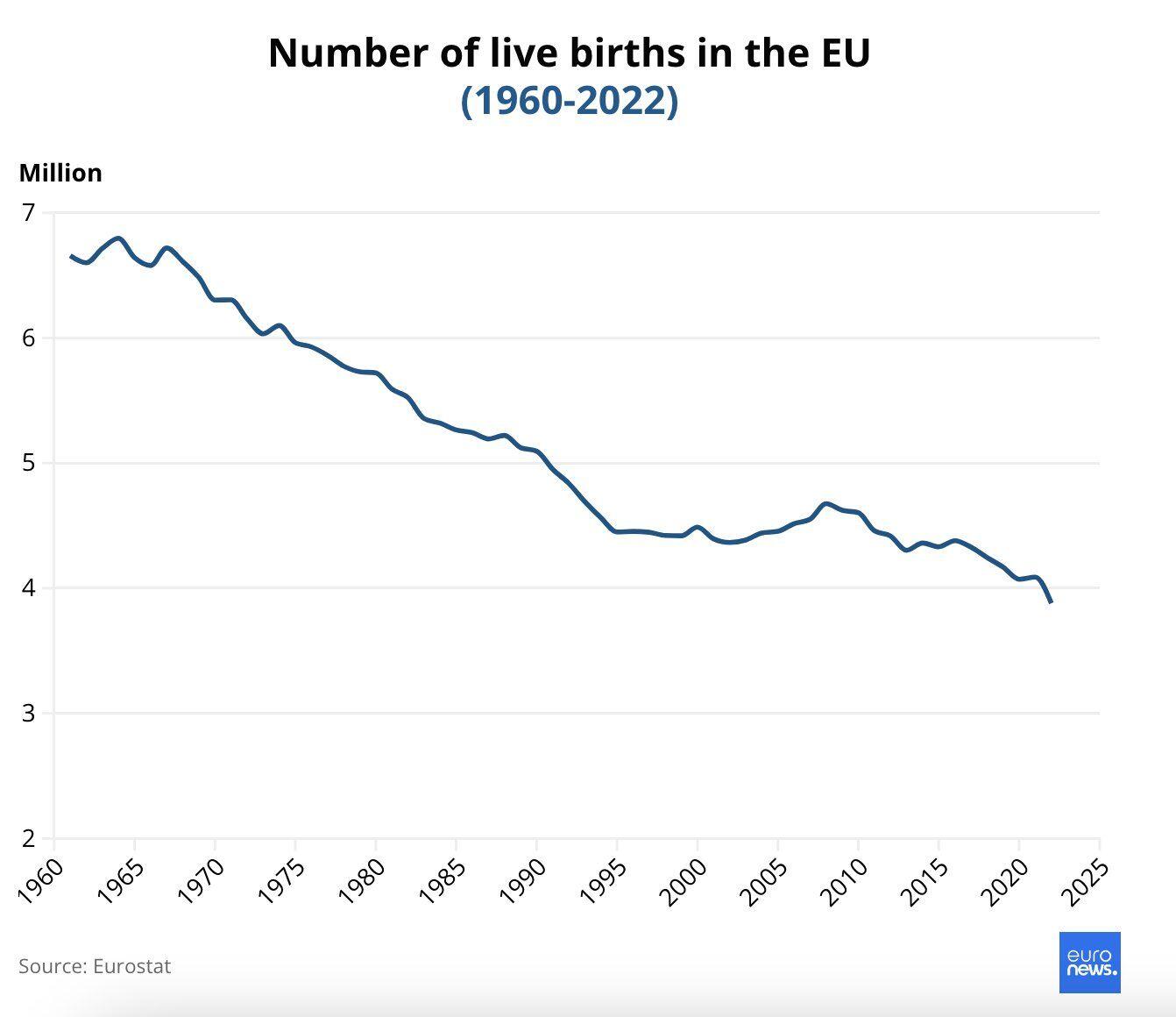quotingThe laws of economics dictate that
note13em…zl3r
- what you tax, you get less of
- what you subsidize, you get more of
Experience and logics tell us that people get fewer children in urban areas than in the countryside.
Furthermore, families are the only institutions that produce children.
Do you agree with me so far?
Grok estimates that the EU's average fertility rate in 1960 was approximately 2.59 births per woman.
The EU’s average fertility rate is now 1.46

This is a reduction of 77 per cent.
Grok estimates that the public sector's spending as a share of GDP for the five major EU economies between 1960 and 2022 likely has grown by at least 50% to 100%.
By other words, in this period we have seen a shift of economic wealth from the private sector to the public sector comparable to the average reduction in the birth rates.
My best guess is that it's here we find the main explanation.
Shifting of wealth from the private to the public sector is shifting of wealth from those who produce kids to institutions which produce bureaucracies.
What you tax (people), you get less of.
What you subsidize (public sector), you get more of.
And bureaucracies typically grow the most in urban areas, where people traditionally prefer to have fewer children than in the countryside.
In conclusion, less production of kids is a result of the growth of the public sector, which mainly consists of institutions in urban areas that produce bureaucracies instead of kids.
A socialist society is parasitic of nature, and the parasite in the end always runs out of hosts.
halalmoney on Nostr: ‘A socialist society is parasitic [in] nature, and the parasite in the end always ...
‘A socialist society is parasitic [in] nature, and the parasite in the end always runs out of hosts.’
